Building energy efficiency is no longer a luxury—it’s a necessity. As energy costs rise and environmental concerns grow, homeowners and businesses alike are looking for ways to reduce energy consumption. Fortunately, adopting energy-efficient practices can drastically cut down energy bills while reducing carbon footprints. But where do you start? Here are the best tips for making your building more energy efficient.
Why Energy Efficiency Matters in Buildings
Lower Energy Bills
Energy-efficient buildings consume less energy, reducing utility costs significantly. Over time, these savings can outweigh the initial investment in energy-efficient upgrades.
Environmental Impact
Reducing energy use means cutting down greenhouse gas emissions, helping combat climate change and protecting the environment.
Enhanced Comfort and Health
Energy-efficient designs improve indoor air quality, maintain optimal temperatures, and reduce noise levels, making the building a healthier space.
What Is Smart Grid and Energy Management In Simple Way
Understanding Energy Consumption in Buildings
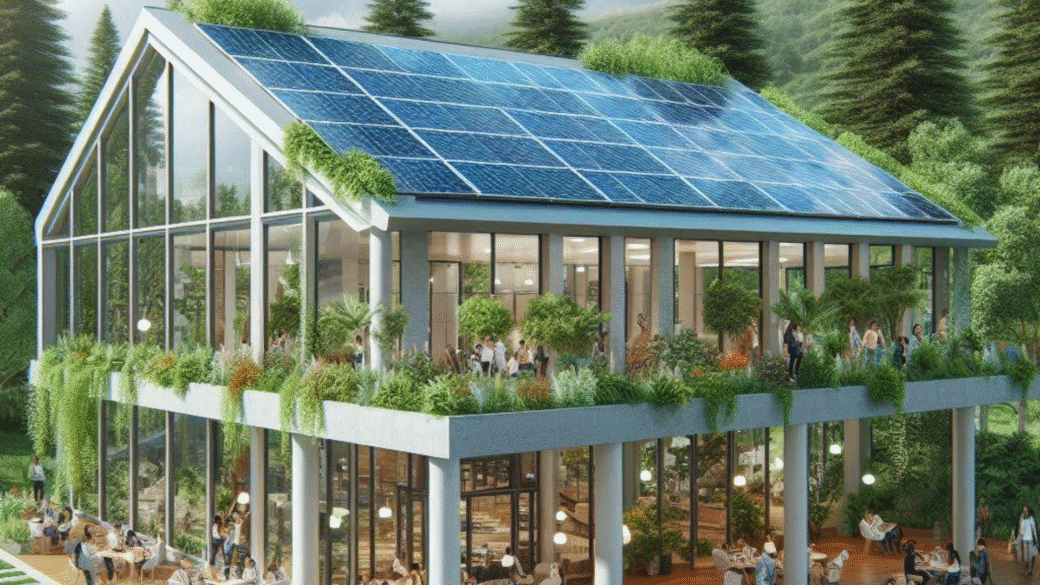
Key Areas Where Energy is Wasted
- Poor Insulation
- If a building isn’t well-insulated, heat can easily escape during winter or enter during summer. This means heaters and air conditioners have to work harder, using more energy.
- Inefficient Heating and Cooling Systems (HVAC)
- Old or poorly maintained heating and cooling systems don’t work efficiently. They use more energy than necessary to keep the temperature comfortable.
- Outdated Appliances and Lighting
- Older appliances and lights often use more electricity than newer, energy-efficient ones. Replacing them can save a lot of energy.
- Unnecessary Water Heating
- Sometimes water is heated even when it’s not needed, or the water heater is set too high. This wastes a lot of energy.
Role of Modern Technologies
Smart Systems
These are devices that can control things like heating, cooling, and lighting automatically. They learn your habits and adjust settings to save energy—for example, turning off lights when no one is in the room.
IoT (Internet of Things)
This means everyday devices (like thermostats, lights, and appliances) are connected to the internet. They can talk to each other and be controlled from your phone. For example, you can turn off your AC while you’re away from home using an app.
How IoT is Making Everyday Life Easy.
Tip 1: Improve Insulation and Sealing For Energy Saving.
Keeping your home warm in winter and cool in summer is easier when it’s properly sealed and insulated. Here’s how it helps and what you can do:
Why Insulation is Important
- Good insulation keeps the heat inside during winter and outside during summer.
- This means your heater and air conditioner don’t have to work as hard, so you use less energy and save money.
How to Seal Gaps and Leaks
- Caulking: Use a special paste (called caulk) to fill in small cracks around windows, doors, and walls.
- Weather Stripping: Stick rubber or foam strips around windows and doors to stop air from leaking in or out.
- Insulate Key Areas: Add insulation to your attic, walls, and basement to keep your home better protected from outside temperatures.
Tip 2: Install Energy-Efficient Windows For Energy Saving
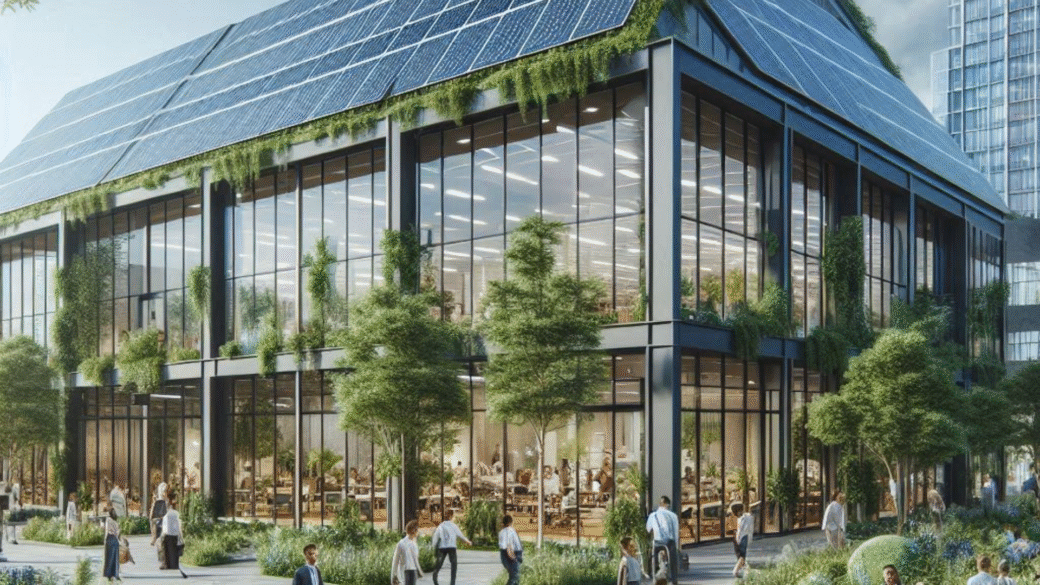
Windows can let in or lose a lot of heat. Using the right kind of windows can help save energy and make your home more comfortable.
Why Choose Double-Glazed Windows?
- These windows have two layers of glass with air in between.
- This design helps keep the heat inside during winter and block heat from entering during summer.
- As a result, your heating and cooling systems don’t have to work as hard, saving energy and money.
Benefits of Low-E Glass
- Low-E (Low-Emissivity) glass has a special coating that blocks out invisible heat rays from the sun.
- It helps keep your home cooler in hot weather without blocking natural light.
- It also protects your furniture and floors from fading due to harmful sunlight.
What Is The Best Energy Storage Solution In Easy Steps.
Tip 3: Upgrade to Smart HVAC Systems For Energy Saving
Heating and cooling your home can use a lot of energy. But smart systems can help you save money and stay comfortable. Here’s how:
Why Programmable Thermostats Matter
- You can set a schedule for when the heating or cooling turns on and off.
- For example, it can turn off while you’re at work and turn back on before you get home.
- It adjusts the temperature automatically based on when people are home.
Benefits of Smart Climate Control
- Saves Energy: It only uses heating or cooling when it’s actually needed.
- Keeps You Comfortable: It keeps the temperature steady, so you’re not too hot or too cold.
- Control from Anywhere: You can use your phone to check or change the temperature, even if you’re not home
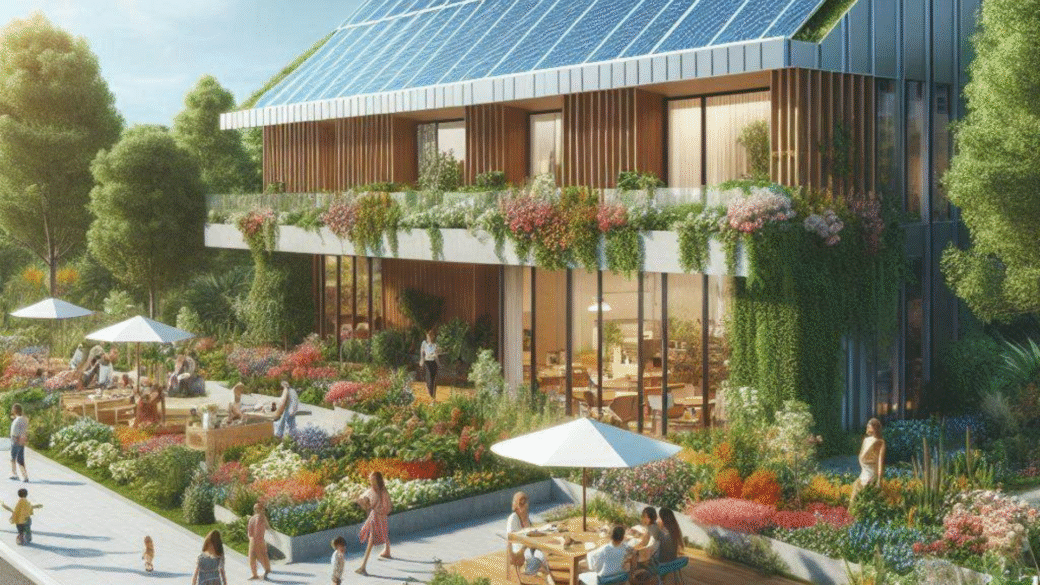
Tip 4: Use Energy-Efficient Lighting
Lighting your home or building can use a lot of electricity, but there are easy ways to save energy:
Switch to LED Bulbs
- LED bulbs use way less electricity—up to 80% less than old-style bulbs.
- They also last much longer, so you don’t have to replace them as often. That saves money too!
Use Motion Sensors and Timers
- Motion Sensors: These turn the lights on when someone enters a room and off when no one is there.
- Timers: These can turn lights on or off at set times, so you don’t forget and leave them on by accident.
How Solar Water Heater Work Understand In Simple Way
Tip 5: Integrate Renewable Energy Solutions For Energy Saving
Solar Panels – Use the Sun for Power
- Solar panels sit on your roof and collect energy from the sun.
- This energy can be used to run your lights, appliances, and other electronics.
- It reduces your electricity bills because you’re using free energy from the sun.
Geothermal Systems – Use the Earth to Heat and Cool
- Just below the ground, the temperature stays the same all year round.
- Geothermal systems take advantage of this to warm your home in winter and cool it in summer.
- They are very efficient and use less energy than regular heating and cooling systems.
Tip 6: Optimize Water Usage
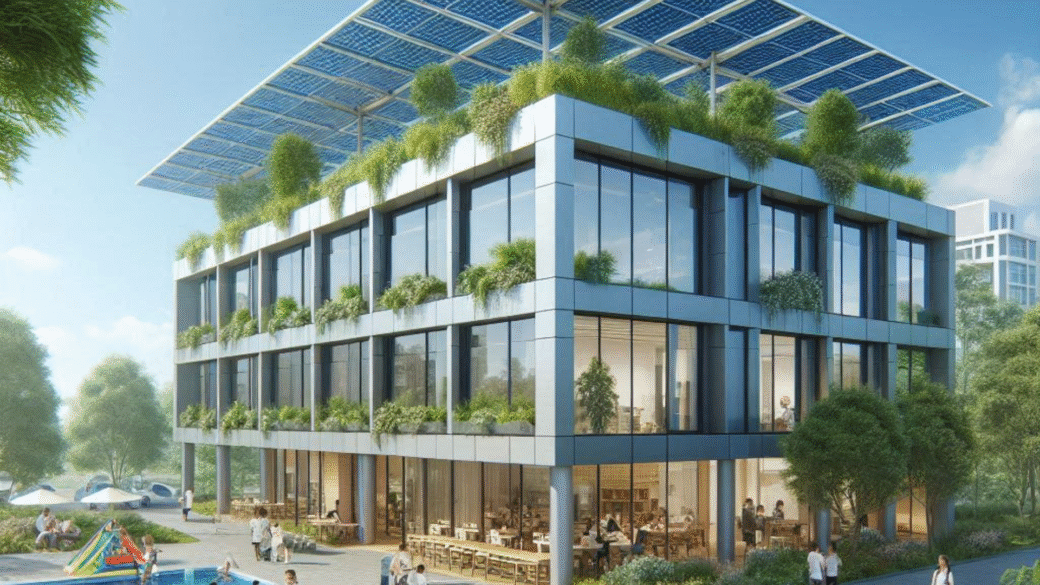
Install Low-Flow Fixtures
Low-flow faucets, showerheads, and toilets use significantly less water without compromising performance.
Harvest Rainwater for Reuse
Rainwater harvesting systems reduce water demand by using collected rainwater for irrigation or non-potable purposes.
Tip 7: Choose Energy-Efficient Appliances
Look for ENERGY STAR Certification
Appliances with ENERGY STAR ratings consume less energy and water, offering long-term savings.
Regular Maintenance to Improve Efficiency
Routine maintenance, such as cleaning filters and checking seals, ensures appliances function optimally.
Tip 8: Use Smart Home Automation Systems For Energy Saving
Benefits of Smart Controls
Smart home systems automatically adjust lighting, temperature, and security based on user preferences and schedules.
How Automation Reduces Energy Waste
By automating processes, smart systems prevent energy waste caused by human oversight.
What Is Smart Grid and Energy Management In Simple Way
Tip 9: Optimize Building Orientation and Design
Maximize Natural Lighting
- By placing windows and skylights in the right spots, you can let more natural light into your home.
- This means you won’t need to use artificial lights during the day, saving electricity.
Strategic Placement of Windows and Shades
- The way you position windows can help control how much heat comes in or escapes.
- Placing windows in the right places can keep your home warm in winter (by letting sunlight in) and cool in summer (by blocking the heat).
- Shades or blinds can be used to control the amount of sunlight coming in, helping with comfort and reducing energy use.
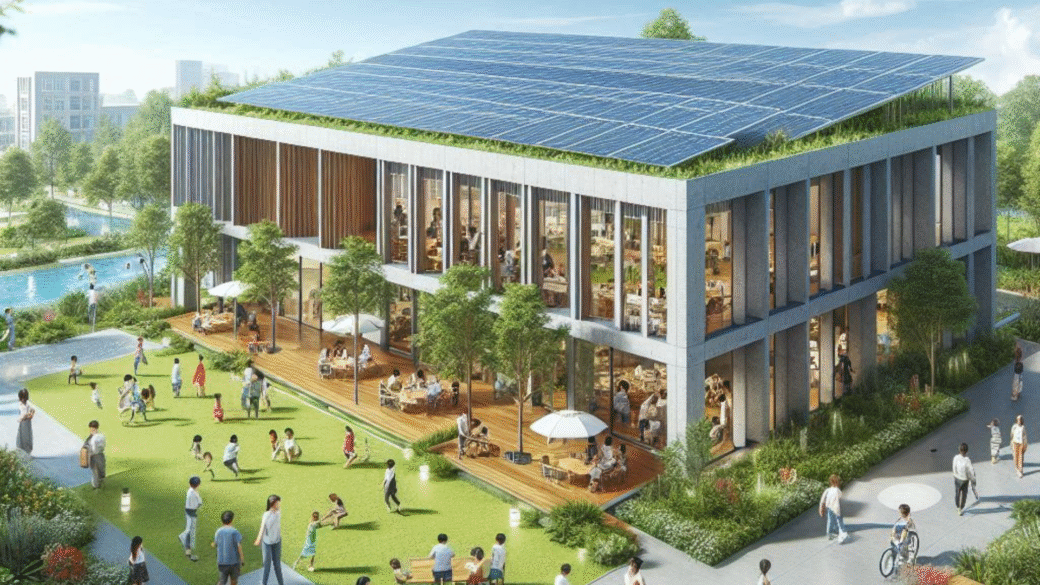
Tip 10: Conduct Regular Energy Audits
Identify Problem Areas
Energy audits analyze energy consumption patterns to identify inefficiencies.
Implement Necessary Improvements
Based on audit results, implement targeted upgrades to improve energy efficiency.
Tip 11: Educate Occupants About Energy Conservation
Teaching people in your building about energy-saving habits can make a big difference. Here’s how you can help:
Promote Sustainable Practices
- Encourage people to turn off lights when they leave a room.
- Remind them to unplug electronics when not in use.
- These small habits can save a lot of energy over time.
Encourage Behavioral Changes
- Reducing water usage also saves energy because water heating uses a lot of electricity.
- Simple actions like adjusting the thermostat (not too high or low) and using less hot water can help save energy.
Conclusion
Improving the energy efficiency of buildings is a smart investment for both homeowners and businesses. By adopting these proven tips, you can lower energy costs, reduce environmental impact, and create a more comfortable living or working space. Start small and gradually incorporate these practices to transform your building into an energy-efficient haven.
FAQs
1. What is the easiest way to improve building energy efficiency?
Upgrading to LED lighting and sealing gaps to prevent heat loss are the easiest and most cost-effective ways to improve energy efficiency.
2. How much can energy-efficient upgrades save?
Energy-efficient upgrades can reduce energy bills by 20-30%, depending on the measures implemented.
3. Are smart home devices worth the investment?
Yes, smart home devices optimize energy usage, offering long-term savings and convenience.
4. Can solar panels power an entire building?
Yes, with adequate sunlight and properly sized systems, solar panels can generate enough power to meet a building’s energy needs.
5. How often should an energy audit be conducted?
It’s recommended to conduct an energy audit every 2-3 years to identify inefficiencies and maintain optimal performance.
